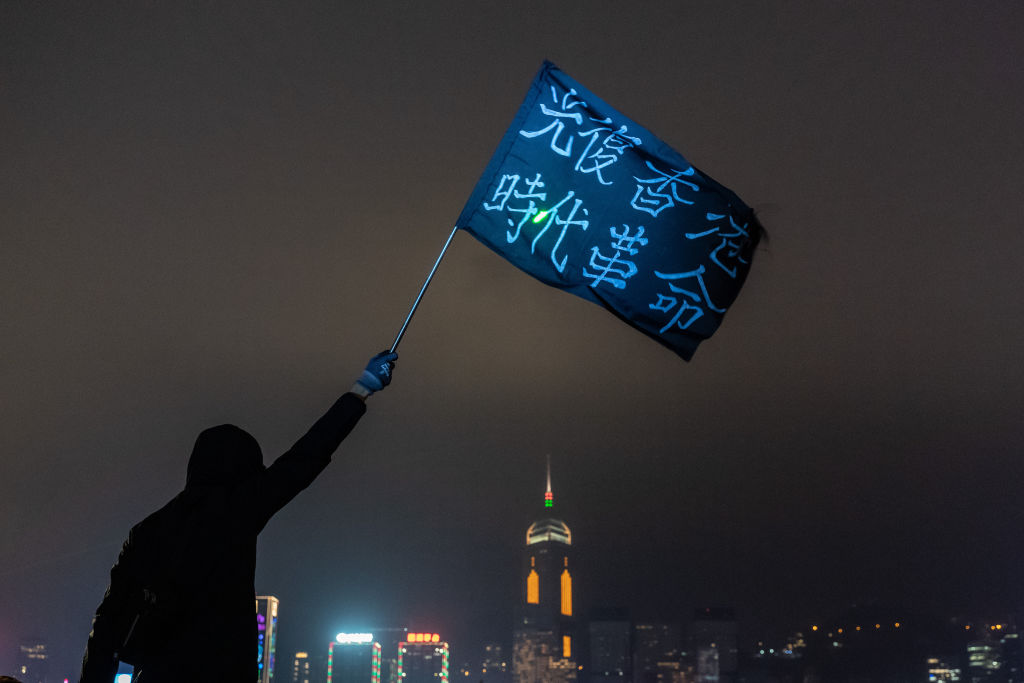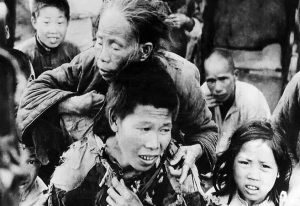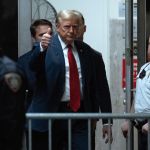The Chinese Communist party made an announcement yesterday which effectively ends ‘one country, two systems’ in Hong Kong, and in so doing launched a brazen assault on the international rules-based order. They have also dramatically changed the very nature and way of life of the city which was once my home.
Over the past six years, the regime in Beijing has increasingly tightened its grip on Hong Kong, eroding its freedoms initially subtly but more recently with dramatic acceleration, and tearing up the promises it made in an international treaty with Britain before the handover.
But yesterday came the final, most blatant nail in the coffin: the announcement that the National People’s Congress in Beijing will introduce national security legislation which will include draconian punishments for ‘subversion’, secession’ and ‘colluding with foreign political forces’. The latter ‘crime’ could make it illegal for Hong Kongers to brief Members of Parliament in Britain — and certainly to partner with me and the advocacy organization I founded, Hong Kong Watch. In 2017, I was denied entry to Hong Kong on Beijing’s direct orders. Under this new law, I may never be able to return to the city where I began my working life during the first five years after the handover 23 years ago. More importantly, my Hong Kong friends could be jailed for talking to me.
A national security law in itself is not necessarily a problem. Every country has a responsibility to protect its national security. But this should never be at the expense of fundamental rights and freedoms. Article 23 of the Basic Law — Hong Kong’s mini-constitution — requires national security legislation to be introduced at some stage, but opponents have argued that until Hong Kong has universal suffrage, which the Basic Law also promises, such a law would pose a danger. The proposed law as it stands is a flagrant violation of Hong Kong’s obligations as a signatory to the International Covenant on Civil and Political Rights. As the last governor of Hong Kong Chris Patten says, it is ‘a comprehensive assault on the city’s autonomy, rule of law and fundamental freedoms’.
Under this law, activities counted as normal in Hong Kong may become criminal. Lord Patten addressed the Foreign Correspondents Club online earlier this week: will that soon become a crime? Amnesty International has offices in Hong Kong: where will the new law leave them?
In October 2018, the ‘father’ of Hong Kong’s democracy movement Martin Lee addressed a fringe meeting at the Conservative party conference in Birmingham, together with academic Benny Tai and Nathan Law, who had been elected the youngest member of the legislative council (and was later disqualified for quoting Mahatma Gandhi in his oath). Would that be an offense soon? The fact that all three have in recent years been arrested for entirely peaceful protest suggests that under this new law, even the most basic right to demonstrate could be banned.
Even worse than introducing this controversial law — which drew 500,000 people onto the streets the last time it was attempted in 2003 — is the idea of ramming it through via the national people’s congress, completely bypassing — and thus fatally neutering — Hong Kong’s legislative council. It makes a mockery of any remaining pretense of the ‘high degree of autonomy’ promised by the Joint Declaration. Moreover, the Basic Law requires that Article 23 be activated by the Hong Kong government ‘on its own’ — not from Beijing.
This law does not only destroy Hong Kong’s freedoms, insult the international rules-based order and undermine one of Asia’s most open cities, which has until now been a regional hub for media and international civil society organizations, it also directly threatens Hong Kong’s status as one of the world’s most important international financial centers. Hong Kong matters as a global trading hub, but its economic success is as a result of the qualities that underpin it: free trade, freedom of expression, transparency, the rule of law and the city’s autonomy. Dismantle these, as the Chinese regime seems intent on doing, and you unravel its viability as a global financial center.
So for the international community, the time for robust, rapid and co-ordinated action is long overdue. For too long Britain — which has both a moral and a legal obligation to Hong Kong under the Joint Declaration — has been at best tepid in its response to the ever-increasing erosion of the city’s freedoms and autonomy. Now we have such a blatant stab at the very heart of one country, two systems, it is time for more than the usual limp rote-like ‘monitoring closely’ statements which are trotted out by the Foreign Office. It is time for the Prime Minister himself to speak out. When an international treaty to which Britain is a signatory is ripped up by the other side, the Prime Minister needs to take a stand.
***
Get three months of The Spectator for just $9.99 — plus a Spectator Parker pen
***
A year before the handover Sir John Major, as prime minister, said in Hong Kong: ‘If there were any suggestion of a breach of the Joint Declaration, we would have a duty to pursue every legal and other avenue available to us’. It is time to make good on his promise.
Britain should take the lead in establishing an international contact group of like-minded allies to coordinate a global response to Beijing’s assault on Hong Kong. We should impose Magnitsky-style sanctions. And we should explore the possibility of bringing a case against China to the International Court of Justice for breach of the Joint Declaration.
For too long we have betrayed the people of Hong Kong, our promises and our values. It is time to speak up and act to deliver a clear message to Beijing of the consequences if they continue down the path they are on — before it is truly too late.
Benedict Rogers is co-founder and chair of Hong Kong Watch
. This article was originally published on The Spectator’s UK website.


















